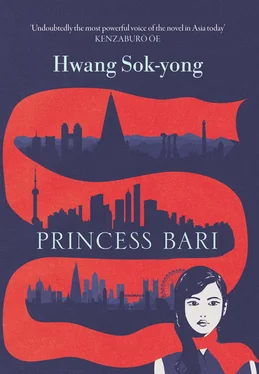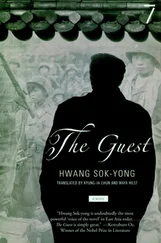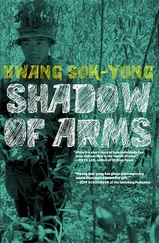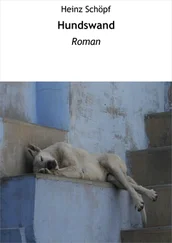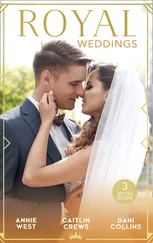When he pushed inside of me, it hurt so much that my hair stood on end and my spirit nearly left my body. For a moment I saw a woman with her hair covered by a white hijab , two little girls and an old man with a beard and a long tunic standing in a row next to the bed.
That weekend, Ali and I went to see Grandfather Abdul. We were going because I wanted to; Ali was very taken aback at first by the suggestion, but when he heard why, he pursed his lips and thought for a long time with his head down. Then he nodded and agreed. I explained: “You and I are different from Westerners. I don’t know your customs, but where I come from, women don’t just sleep with a man they aren’t planning to marry. I’ve decided that I’m going to be your wife.”
I learned something awful later. In his family’s home country, daughters and sisters like me who gave their virginity away without their parents’ permission could be beaten to death by their fathers and older brothers, and no one would say a thing about it. When we walked into Grandfather Abdul’s flat together looking nervous, he frowned but didn’t ask us what was wrong. I realized belatedly that he was waiting for us to say something first, so I reached back and pinched Ali on the butt. He let out a small yelp, shot me a look and then quickly explained why we were there.
“Um, I, uh, want to marry Bari.”
I wanted to yell: You idiot! You can’t just blurt it out like that! But instead I looked at him and scowled.
“Do you feel the same way, Bari?”
I couldn’t bring myself to answer the question out loud, so I just nodded, my head hanging down. Grandfather Abdul looked at us from over his reading glasses.
“Bari, come sit down. Ali, give us some space.”
“Where do you want me to go?”
“Boy, what do I care? Just go down to the pub and get a beer or something! It doesn’t matter. But be back in an hour!”
Ali jumped up and hurried out the door. Grandfather Abdul and I were alone. I perched on the edge of a chair across from where he sat.
“How old are you?” he asked.
“I’m eighteen this year.”
“That’s young. But then again, when I was your age people got married even younger than that. However, we are also Muslims who believe in God. Muslims are supposed to marry other Muslims, even though not everyone sticks to that these days. Do you really like Ali?”
I couldn’t stop myself from laughing at the question.
“Ali is so silly,” I said. “He’s a big kid.”
“So you do like him. If you two want to marry, I won’t stop you. I just want that boy to get his act together, work hard, earn money and live a good Muslim life. We’re in a foreign land. What more can I ask of him?”
Grandfather Abdul asked where we planned to live, and I told him without hesitation that I wanted to get rid of Ali’s flat in Shepherd’s Bush, where he lived alone, and move in with Grandfather Abdul right away. He had two bedrooms and a living room, and it was already fully furnished. But most of all, I would feel more secure if the three of us lived together.
“I imagine Ali will object,” he said. “Hang on. The flat across from yours must be vacant now. Why not live there?” He explained that he’d gotten a phone call from the Nigerian woman: her husband had been deported, so she was moving away.
“I don’t think we need to preserve all our traditional marriage customs. We can combine the mayoun and mehndi and hold them here, as a preliminary wedding ceremony that your friends and Ali’s can attend; and then the actual wedding can be held at Ali’s parents’ house in Leeds for neighbours and relatives.”
He brought up their ancestors again.
“My father was a shepherd, but he owned some farmland too. For generations they lived in a village in Kargil, in the northern Indian state of Jammu and Kashmir. He was a follower of Sheikh Abdullah, but after the sheikh was arrested, my father took the family and moved to Srinagar.”
Even after I became a part of their family and had lived with them for years, I still hadn’t come to understand half of Islamic doctrine, and understood even less of the stories about their ancestors and their home country. When I was growing up, I’d been told that North and South Korea lived differently and thought differently, and therefore had always fought like cats and dogs, and the grown-ups said it was the fault of those big-nosed Americans. The elders in Ali’s family likewise told me that Hindus and Muslims had split into India and Pakistan and fought for a long time, that in Indian-occupied Jammu and Kashmir, innocent people were still being rounded up and killed, and that the British were originally to blame for this.
Grandfather Abdul told me innocent civilians were still being killed in this fake war. He said that when he was young, soldiers would brazenly break down people’s doors in broad daylight, storm their houses and shoot them.
“What’s a ‘fake war’?”
“That’s when soldiers murder Muslims in order to steal and do whatever they want, and then report it to their superior officers as ‘shooting resisters’. For that they’re rewarded with money and promotions. There was another story like that in the news just recently.”
Grandfather Abdul had returned from the fields one day to find that his wife and two daughters had been shot to death. Ali’s father, who was five at the time, was hiding under a water barrel.
“We’re the only two in our family who survived.”
Grandfather Abdul and Ali’s father fled to London in the mid-1960s, during the height of the conflict in Kashmir.
“I was thirty at the time, and had already lived through everything you can imagine. I got remarried. Men have to get married if they want to save money. When you live alone, you get reckless. A couple of years ago my second wife passed away, and now my only wish left is to make a pilgrimage to Mecca.”
Just then I remembered the shadowy figures I’d seen in Ali’s flat a few days earlier.
“I saw some people in a dream,” I told Grandfather Abdul. “A lady in a white hijab and two girls. Also an elderly man in a tunic and a long beard.”
Grandfather Abdul slowly nodded.
“That was probably Ali’s grandmother and our two daughters. The man with the long beard is definitely my father.” His eyes were already filling with tears. He wiped them away with his sleeve. “Thank you for telling me. If they visited you, then it means they’ve accepted you as family.”
Ali said he had to talk to his parents before we got married, and Grandfather Abdul agreed. We decided not to drag it out and made plans to go to Leeds the following Monday, when we were both free. Leeds was north of London, in Yorkshire, two and a half hours away by train. It was a little too far for a day-trip, so we planned on spending the night at Ali’s parents’ house and returning the next day. Grandfather Abdul called Ali’s father first to tell him what was happening, while Ali called his mother. If Ali had told them on his own, they probably would have dismissed it as nonsense.
Ali’s house was on the outskirts of Leeds, in a Muslim enclave. Most of the houses in the neighbourhood were painted white and had slab roofs, which made the buildings all look alike. Instead of going out to a yard, neighbours went up to their roofs to drink and talk and have barbecues. Most of the people there were Pakistani. Ali’s three younger siblings were still living with their parents. Ali was the second-oldest. His older brother had already married and moved out, while his next-youngest sister lived in the neighbouring city of Bradford with her husband. His mother told us that they would probably only come to the wedding ceremony itself or to the baraat , the groom’s procession to the wedding.
Читать дальше
